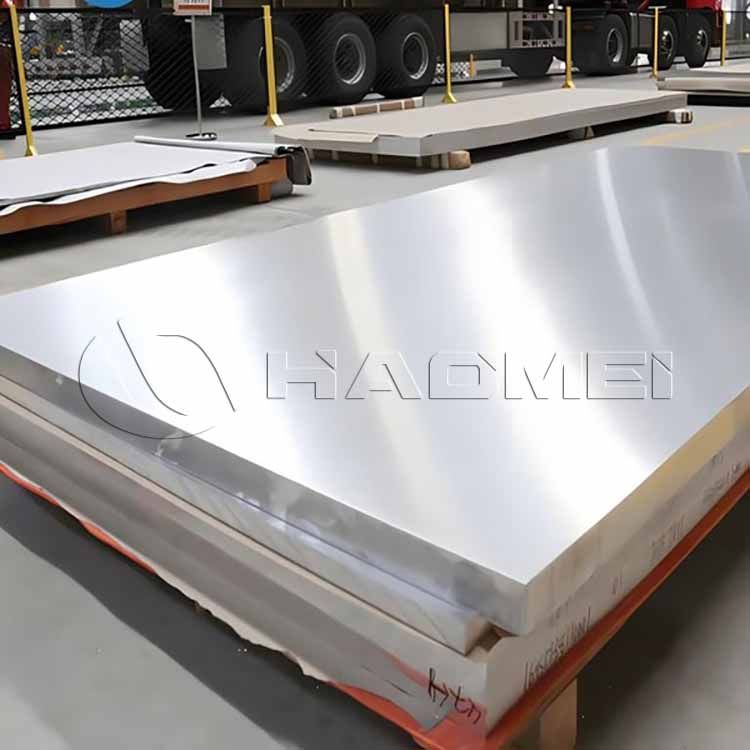Get in touch
-
Email:
sale@alumhm.com -
Tel/whatsapp:
+86-15978414719 -
Fax:
+86-0371-65621393 -
Address:
No.14 Waihuan Road, CBD, Zhengzhou, China -
Website:
https://www.aluminium-tanker-plate.com
Aluminum Alloys for Tank Truck: 5083 and 5059
In the field of tank car manufacturing, aluminum alloys are highly favored for their excellent performance, among which 5083 aluminum plate and 5059 aluminum alloy are two of the more commonly used ones.

Similarities between 5083 and 5059 aluminum alloys
1. Basic properties
Both 5083 and 5059 belong to the 5XXX series aluminum alloy, which is an aluminum-magnesium alloy with magnesium (Mg) as the main alloying element. They both have good corrosion resistance and can effectively resist corrosion in many environments, which makes them very suitable for tank car manufacturing.
In addition, the welding performance of the two alloys is also relatively good, which can meet the requirements of a large number of welding processes in the tank car manufacturing process and ensure the integrity and sealing of the tank structure.
2. Partial overlap in applications
In terms of tanker applications, both 5083 and 5059 aluminum alloys are widely used in tanker types that have certain requirements for corrosion resistance and structural strength, such as common food transport tankers, some chemical raw material transport tankers, etc.
Differences between 5083 and 5059 aluminum alloys
Differences in chemical composition
Magnesium content: The magnesium content of 5083 aluminum alloy is generally between 4.0 and 4.9%, while the magnesium content of 5059 aluminum alloy is relatively higher, about 5.25%. Magnesium plays an important role in aluminum-magnesium alloys, and it can significantly improve the strength and corrosion resistance of the alloy. The higher magnesium content of 5059 theoretically makes it more advantageous in strength and corrosion resistance in certain corrosive environments.
Other elements: 5083 aluminum alloy also contains manganese (Mn), with a content of 0.40-1.0%, which helps to improve the strength of the alloy and improve processing performance. In addition to the higher magnesium content, the zinc (Zn) content of 5059 aluminum alloy is also higher than that of 5083, about 0.21% (the zinc content in 5083 is about 0.15%). The addition of zinc affects the microstructure and properties of 5059 alloy, making it different from 5083 in terms of corrosion resistance.
Different performance
Strength: Generally speaking, 5059 aluminum alloy has slightly higher strength than 5083 aluminum alloy due to its higher magnesium content and the combined effect of alloying elements. 5059 may have more advantages in application scenarios where tank trucks are subjected to greater pressure or require higher structural strength.
Corrosion resistance: Studies have shown that the corrosion resistance of 5059 alloy is better than that of 5083 alloy. In some tank trucks that transport corrosive media (such as specific chemical liquids), 5059 aluminum alloy can better ensure the service life of the tank body and reduce safety hazards such as leakage caused by corrosion.
Processing performance: 5083 aluminum alloy has good processing performance, thin plates can be easily bent, and many processing steps can be saved. Due to its composition characteristics, 5059 may have more stringent requirements on process parameters during processing. For example, in the cold processing process, 5059 needs to more accurately control processing temperature, speed and other parameters to avoid processing defects, but in general, the processing performance of both can meet the conventional processing technology requirements of tank truck manufacturing.
Applicable tank truck types
5083 aluminum alloy is widely used in various types of tank trucks due to its good comprehensive performance. In the field of food transport tank trucks, its good corrosion resistance can ensure that food is not contaminated by tank materials during transportation; in the manufacture of refrigerated trucks and refrigerated containers, 5083 aluminum alloy can meet the requirements for tank strength and stable performance in low temperature environments.
At the same time, 5083 is also a commonly used material in some ordinary liquid transport tank trucks that are more cost-sensitive and have moderate performance requirements, because it can have good cost-effectiveness while ensuring performance.
Due to its higher strength and better corrosion resistance, 5059 alloy is more suitable for some special tank trucks with extremely high requirements for tank performance. For example, in tank trucks transporting highly corrosive chemicals, 5059 can effectively resist the corrosion of the medium and ensure transportation safety. For some tank trucks that need to be used for a long time in harsh environments (such as high humidity, strong acid and alkali environments), the advantages of 5059 aluminum alloy can also be fully utilized.
In addition, in some application scenarios that have high requirements for lightweight tank trucks while ensuring high strength, 5059 may also become the first choice, because it can still maintain a relatively light weight under high strength, which helps to achieve energy conservation and emission reduction of tank trucks.
